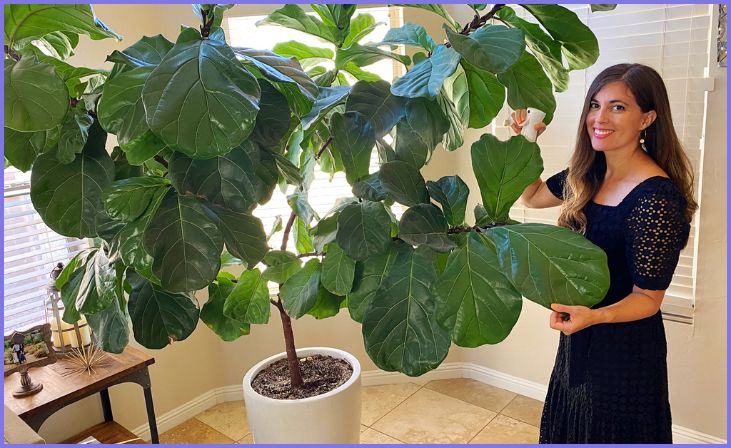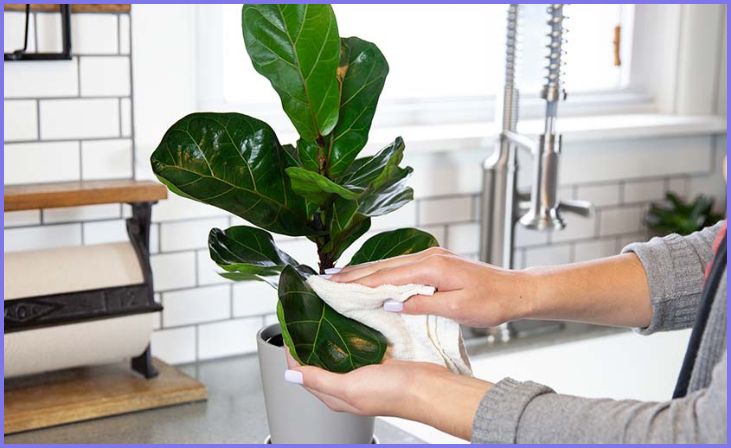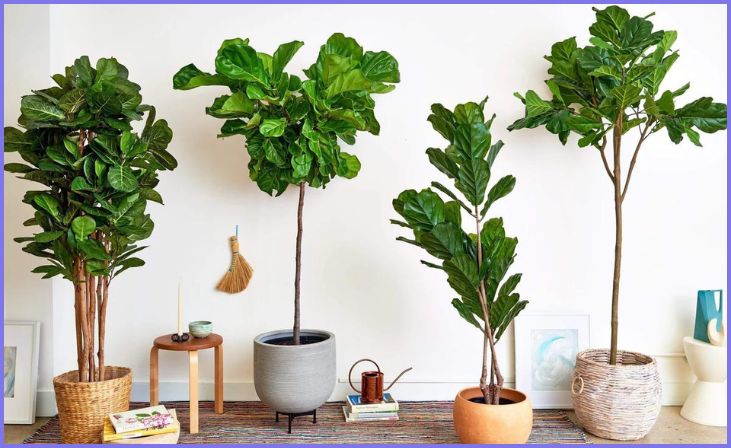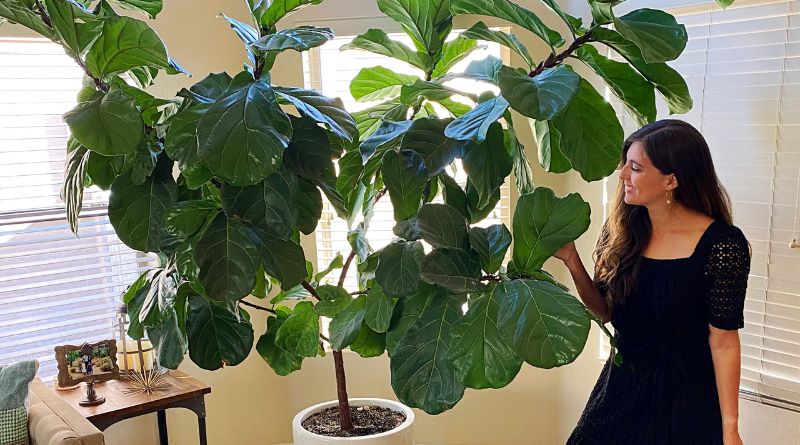Fiddle-leaf figs have become popular houseplants due to their striking appearance and relatively easy care requirements. However, to ensure these plants thrive indoors, it’s important to understand their specific needs. In this guide, we’ll explore everything you need to know about growing and caring for fiddle-leaf figs.
Choosing the Right Location

Fiddle-leaf figs thrive in bright, indirect light. Choose a spot near a window where the plant can receive plenty of filtered sunlight throughout the day. Avoid placing them in direct sunlight, as this can scorch their leaves.
Optimal Temperature and Humidity
Maintain a consistent temperature range of 65-75°F (18-24°C) for your fiddle-leaf fig. Avoid exposing it to drafts or sudden temperature changes. Additionally, these plants prefer moderate to high humidity levels, so consider using a humidifier or placing a tray of water and pebbles near the plant to increase humidity.
Watering Schedule

Water your fiddle-leaf fig when the top inch of soil feels dry to the touch. Ensure thorough watering, allowing excess water to drain from the pot’s bottom to prevent waterlogging. Avoid overwatering, as this can lead to root rot.
Choosing the Right Pot and Soil
Select a pot with drainage holes to prevent water accumulation at the plant’s roots. Use a well-draining potting mix specifically formulated for indoor plants or create a mix of equal parts potting soil, perlite, and orchid bark to promote good drainage.
Fertilizing Routine
During the growing season (spring and summer), fertilize your fiddle-leaf fig once a month with a balanced liquid fertilizer diluted to half strength. Avoid fertilizing during the winter months when the plant is dormant.
Pruning and Maintenance

Regular pruning helps maintain the fiddle-leaf fig’s shape and encourages new growth. Trim any yellowing or dead leaves, and prune back leggy stems to promote a bushier appearance. Wipe the leaves with a damp cloth occasionally to remove dust and keep them looking healthy.
Dealing with Common Issues
- Brown Leaf Tips: This may indicate underwatering or low humidity. Adjust your watering schedule and increase humidity levels if necessary.
- Yellowing Leaves: Overwatering or poor drainage can cause yellowing leaves. Allow the soil to dry out slightly between waterings and ensure the pot has proper drainage.
- Pests: Keep an eye out for pests like spider mites or mealybugs. Use insecticidal soap or neem oil to treat infestations, and isolate the affected plant to prevent spreading.
Repotting
As your fiddle-leaf fig grows, repot it into a slightly larger container every 2-3 years or when it outgrows its current pot. Refresh the soil during repotting to provide fresh nutrients for the plant.
Conclusion
With the right care and attention to its needs, your fiddle-leaf fig can thrive and become a stunning focal point in your indoor space. Remember to provide adequate light, water sparingly but consistently, and maintain proper humidity levels to ensure the health and vitality of your plant. Happy growing!







